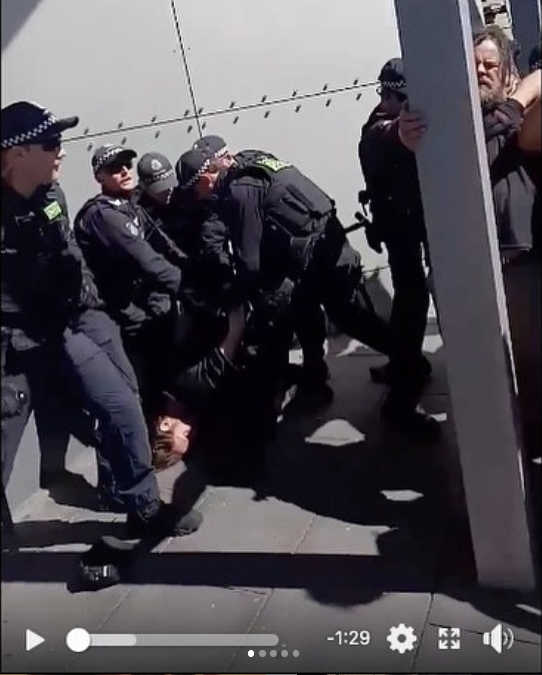It is government related through the laws and regulations that apply to employment conditions.
The ABC quoted example is a step too far. That it has taken a trade union to speak out does tend to colour the discussion. It is an issue with a very broad concern for everyone irrespective of views on unions in politics.
There may be good reasons for specific health assessments relating to employment. Pre or post hiring. These have in industries such as coal in Australia been independent of employers. Medical assessments have been provided as reports concerning relevant outcomes. EG Chest x-rays for lung conditions (subject of a recent concern in the Qld industry) were not considered employer property.
Why change the system.
Personal health assessments and records should remain the confidential property of the individual. Reports to employers should be specific and target reasonable requirements and needs that an employer can demonstrate are necessary and relevant to the occupation.
Without full transparency of health assessments, how do prospective employees determine if employment practices are discriminatory. All decisions on hiring in the private sector are made in private. Any supporting records will relate only to the successful candidate/s.
P.S.
What is it that the employer is concerned about in the ABC quoted example? Are there potentially hazardous health conditions employees may be exposed to once in employment? Is there a need for a base line and future monitoring?
Or is it more worrisome. At one extreme the option of a company CEO with a control fetish, and an interest in collecting and analysing off shore the DNA of all employees from their blood samples, intent unknown?
If there is a genuine industry need for enhanced health screening and monitoring, it should be industry generic. Not employer specific.

